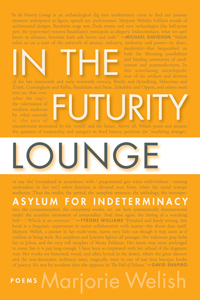 In the Futurity Lounge / Asylum for Indeterminacy
In the Futurity Lounge / Asylum for Indeterminacy
by Marjorie Welish
Coffee House Press, April 2012
112 pages / $16 Buy from Coffee House or Amazon
It says a lot about Marjorie Welish’s new collection of poetry that the cover design of the book consists of well-known writers hard at work both explicating the book and extolling its virtues. The book doesn’t really need that kind of push in terms of quality (line by line, the writing is great throughout) but explaining what Welish’s project consists of is more of a problem. Reading the book, when you try to corral the abundance of subjects addressed in the book into a good read and interesting network of ideas, you’re often interrupted by uninvitingly plastic stretches that may test your patience not because they don’t add up but because Welish’s “not adding up” isn’t an interesting and compelling kind of resistance.
Subjects and abstractions that recur and are addressed from different perspectives across the span of the book include but are not limited to: architecture, modernism, the language of public space, language as a faulty reproductive device, proscriptive language, performance, mechanical technology, outmoded technology, Brecht, Beckett, Stein, Shakespeare, Baudelaire, translation, the pragmatics of the visual art world, and Dada. These aren’t just jumbled together, however, so much as continually revisited in widely varied forms. And with the press materials in hand, there’s even more: the book is actually two books, the first being a “laboratory of modern futurity” and the second “a zone of research” responding to choice terms from translations of Baudelaire’s “Correspondences.” It’s not hard to imagine, then, how the book could labor under the weight of so much content even as the poems themselves are compelling moment by moment.
What more effectively ties the individual poems together is the very creatively employed use of repetition and rearrangement. The poems often proceed not via an attempt to directly address or explain any of the more abstract ideas mentioned above but to perform them and move sideways through varied repetitions and a reliance on all caps and homophones. One of the more concrete examples of this appears in “Signal to Noise,” which begins like this:
What to do with a stranger?
Bathe her and anoint her in oils, permit her to feast. Then interview her.
Then interview her
Ask her name and from whence she came. Then how she came to this pass.
This is a test.
This is a test.
END.
and quickly transforms into complex expansion:
What to do with a stranger? Bathe her and anoint her in oils; permit her to feast.
Then interview her.
SENDER is to issue a few central questions in advance to structure the interview to allow
the SUBJECT a chance to think—I do not believe in provoking the stranger to tilt some
sort of misguided spontaneity in flight! HELPER may indeed issue three or four
questions also and ours, kindred may overlay. Infer her. Test test test test coincidence
of number emitted in collapse.
You’re not arriving at an increased understanding of the nature of either “SUBJECT” or questions but rather you’re shown an increasingly baroque set of variations that address the natures of an interview and a test as well as a play on words that spreads from interview her to infer her and (tacitly) interfere. This is how much of the book does the heavy lifting of addressing such a wide cast of content—by variations that illuminate the importance of minor linguistic differences and by playing around with those differences.
This play, and an attendant “subject” or place or thing, are what gives you mooring in the midst of all the complex abstraction, knowingly referenced in lines like these:
More specifics
legible, capable of being read charismatically, if unintelligibly writ
or written intelligently lenient despite indistnctness or obscurity
since reversed: inverted involved upside down scrambled sampled and
put through a sieve crushed with the blade of a knife cubed
and quartered split off from plaintext
The problem is that “plaintext” gets left completely unmoored for much of the book, which is compelling line by line but doesn’t accrue into any kind of broader perspective on any of the subjects named above or connections between them. That’s the main, and really only, problem of the book: the noise of abstraction is beautiful, but after dozens of dense pages it starts to seem repetitive and feel dull. This is not to say that the book itself is dull, but that the sheer tonnage of poetry crammed in a small font into 97 pages eventually makes the work of playing along much less appealing to do unless you’re an adept at the wide range of references Welish employs (from Frank Lloyd Wright to WWI to a Bob Perelman poem) or else read strictly for surface play rather than any kind of larger architecture.
No single line or poem is flat-footed here, but it’s the weight of unplacable reference and dodge into abstraction that makes the book tough as a straight-through read. Instead the book invites visiting it here and there, piece by piece, reading enough to see the intelligence and wit at work but not so much that the poems’ frequent indeterminacy begins to frustrate or bore. As the book title even suggests, In The Futurity Lounge is less a place to stay than to visit and hang out for a while before moving on, interested in visiting again.
***
Nicholas Grider is an artist and writer whose artwork was recently the subject of a solo show at the Armory Center for the Arts in Los Angeles and whose writing has recently been published in Conjunctions, Drunken Boat and other journals.

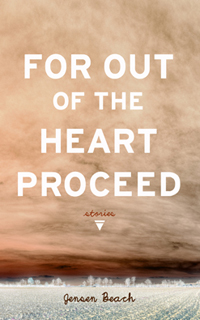 For Out of the Heart Proceed
For Out of the Heart Proceed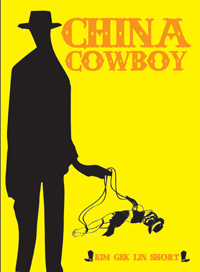 China Cowboy
China Cowboy In the Futurity Lounge / Asylum for Indeterminacy
In the Futurity Lounge / Asylum for Indeterminacy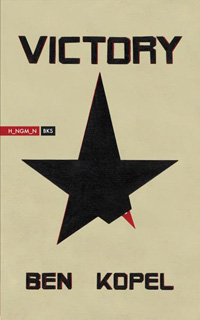 Victory
Victory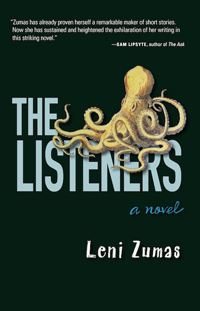 The Listeners
The Listeners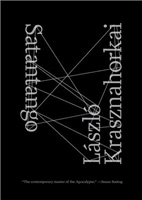
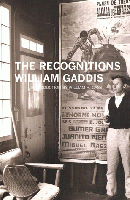
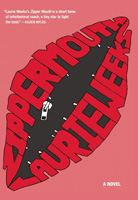
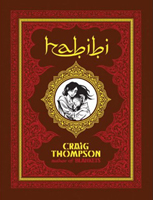

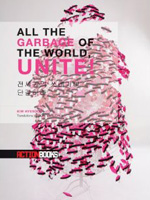
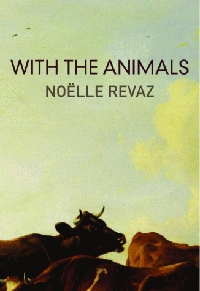 With the Animals
With the Animals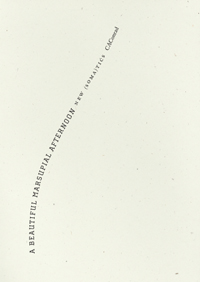 A Beautiful Marsupial Afternoon – New (Soma)tics
A Beautiful Marsupial Afternoon – New (Soma)tics Pith & Amber
Pith & Amber